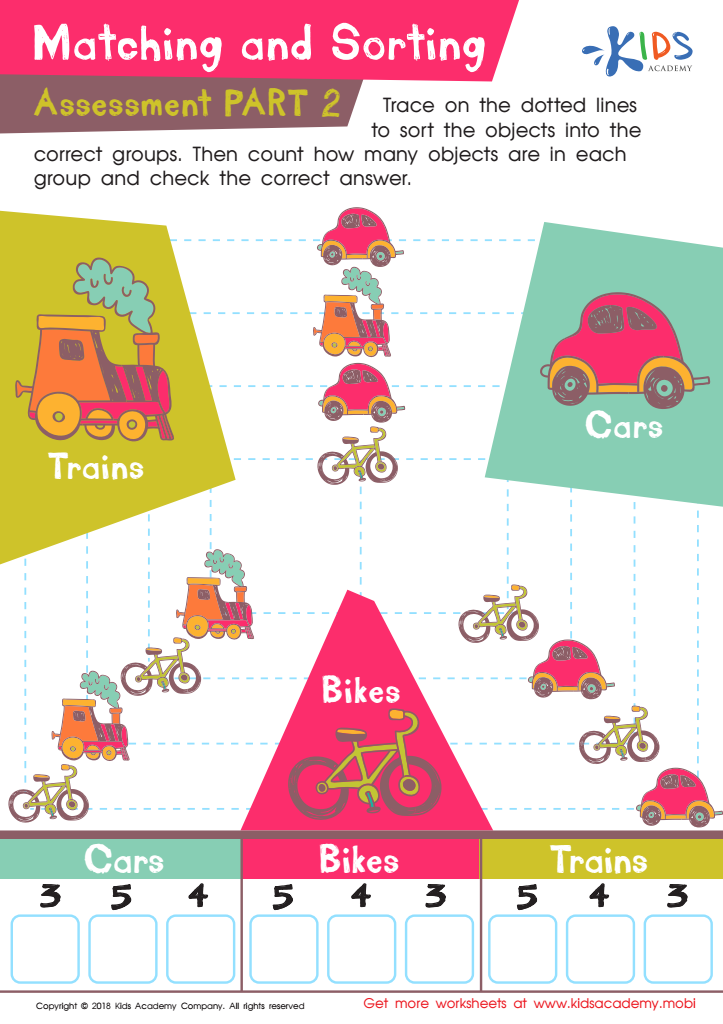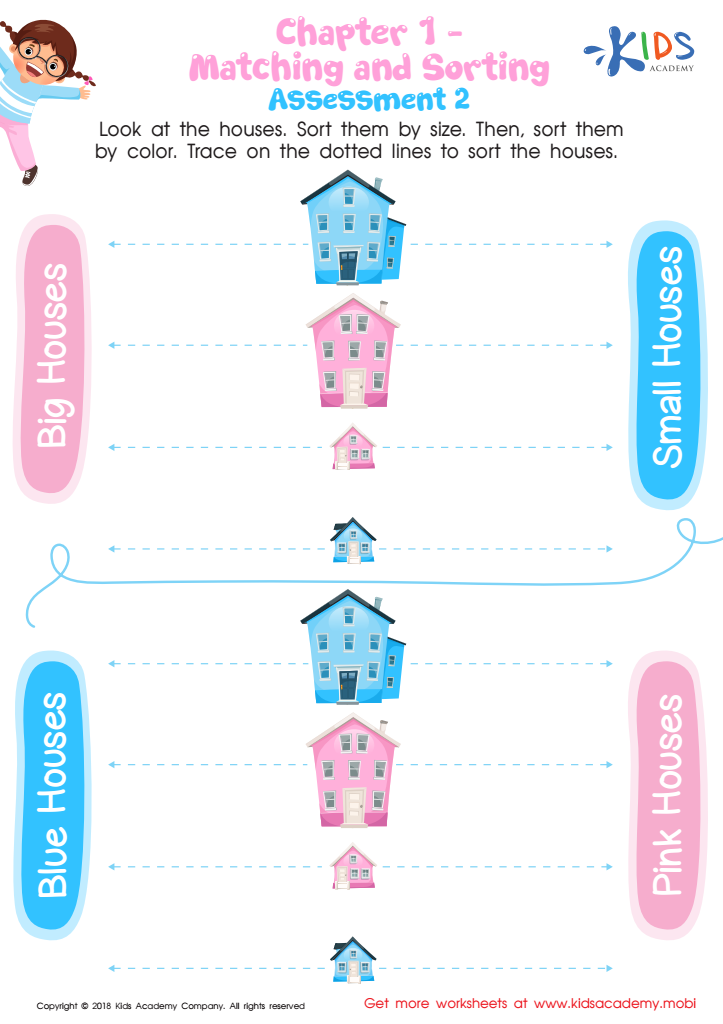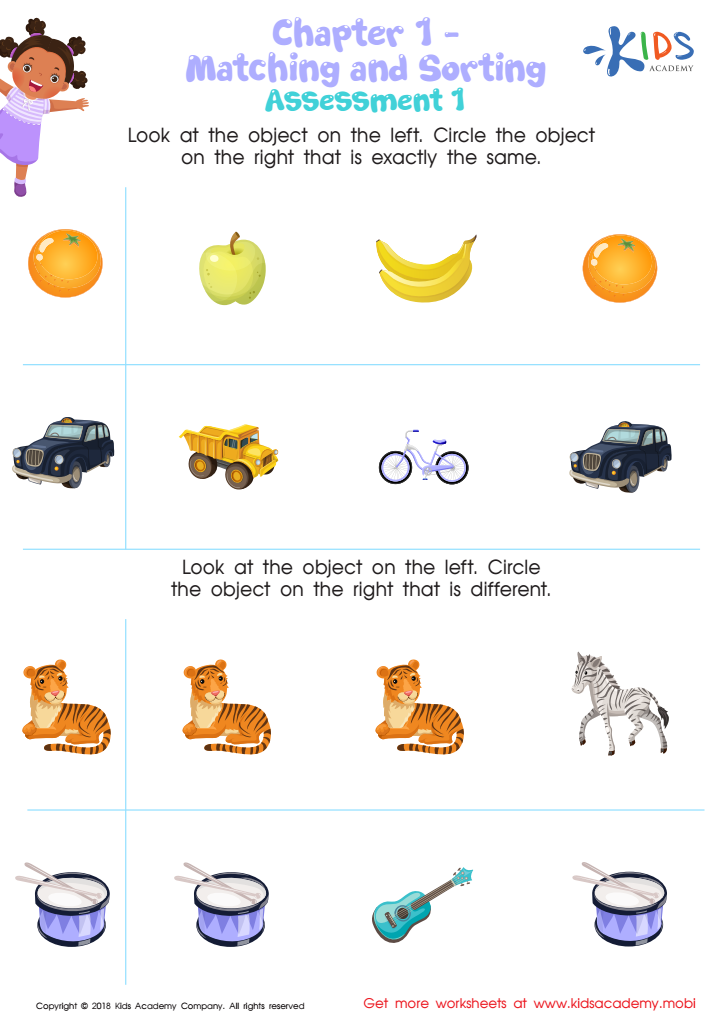Problem-Solving Skills Sorting Worksheets for Ages 5-7
4 filtered results
-
From - To
Explore our engaging Problem-Solving Skills Sorting Worksheets designed specifically for children ages 5-7! These interactive worksheets help young learners develop critical thinking and sorting abilities through fun, age-appropriate activities. By organizing numbers, shapes, and objects, kids enhance their cognitive skills while enjoying the learning process. Each worksheet offers colorful illustrations and clear instructions to make problem-solving both enjoyable and effective. Perfect for classroom use or at-home learning, these worksheets promote independent thinking and boost confidence in young learners. Equip your child with essential problem-solving skills today and watch their analytical abilities flourish! Download now to get started!


Make the Same Pattern Worksheet


Matching and Sorting for Kindergarten: Assessment 2 Worksheet


Matching and Sorting for Preschool: Assessment 2 Worksheet


Matching and Sorting for Preschool: Assessment 1 Worksheet
Problem-solving skills are essential for children aged 5 to 7 as they lay the foundation for critical thinking and decision-making throughout their lives. At this young age, children start encountering various challenges, both in academic settings and daily life, making it vital for parents and teachers to nurture these skills.
Sorting activities, in particular, are an excellent way to promote problem-solving. Engaging children in sorting objects by size, shape, color, or even function allows them to develop their analytical abilities. This process encourages them to make observations, identify similarities and differences, and categorize information—a fundamental aspect of cognitive development.
Additionally, sorting fosters creativity and flexibility. When children approach a task that requires sorting, they must consider multiple strategies and evaluate which one works best. This not only strengthens their cognitive skills but also builds confidence in their ability to tackle problems independently.
Furthermore, strong problem-solving skills translate into better academic performance, higher levels of engagement, and enhanced social interactions. As children learn to navigate challenges effectively, they also develop resilience, which is vital for coping with life's ups and downs. Thus, parents and teachers should prioritize these skills to equip children for future success.
 Assign to My Students
Assign to My Students



















